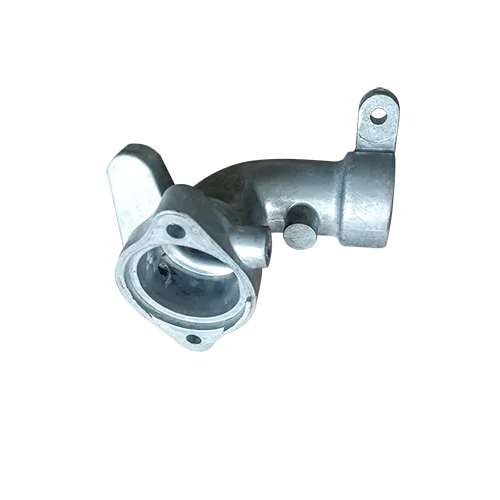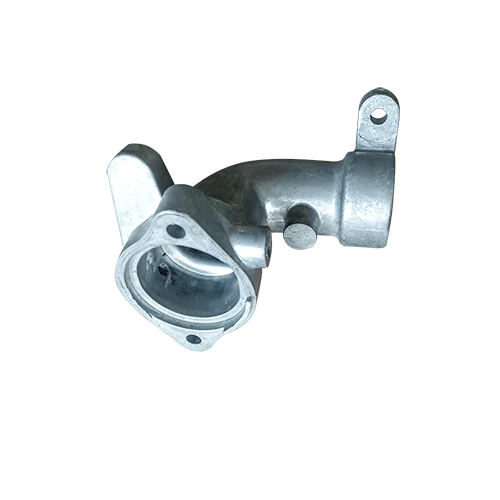Mobile:+86-311-808-126-83
Email:info@ydcastings.com
English
Automotive Metal Casting Solutions - Hebei Yuanda Trade Co., Ltd.
Automotive manufacturing has entered a new era of innovation, driven by advancements in metal casting and processing technologies. As the industry strives for lighter, stronger, and more sustainable components, manufacturers are adopting sophisticated techniques to meet evolving demands. This article explores the latest developments in automotive metal casting, highlighting key technologies, their benefits, and their impact on vehicle performance. We also provide detailed specifications for our products and insights into the company behind these innovations.
Understanding Modern Automotive Metal Casting Technologies
1. Casting Technology: The Foundation of Automotive Components
Casting remains a cornerstone of automotive production, accounting for 15-20% of all vehicle components. This process is critical for manufacturing power system components and structural elements. Advanced casting techniques are now being employed to enhance product quality and efficiency. In developed countries like the US and Europe, digital technologies have reduced casting scrap rates to 2-5%, demonstrating the potential for significant improvements in production efficiency and environmental sustainability.

2. Die Casting: Precision for High-Performance Parts
Die casting plays a pivotal role in modern automotive manufacturing. By using high pressure to inject molten metal into molds, this process creates components with exceptional dimensional accuracy and surface quality. Die casting allows for the production of complex shapes with minimal machining, making it ideal for critical vehicle parts. The use of aluminum and zinc alloys ensures components possess excellent strength and durability, contributing to enhanced vehicle safety and reliability.

3. Semi-Solid Processing: A New Frontier in Lightweight Manufacturing
Semi-solid processing technology is revolutionizing the production of magnesium and aluminum alloy castings. This technique addresses traditional challenges in die-casting magnesium alloys, enabling thinner walls (1-1.5mm) and improved mold design. Semi-solid processing offers significant advantages in weight reduction while maintaining structural integrity. According to industry reports, the global magnesium alloy die casting market is growing at a 25% annual rate, driven by the automotive industry's need for lightweight materials.

4. Integrated Design: Optimizing Performance and Cost
Integrated design approaches are becoming essential in automotive manufacturing. By optimizing part geometry and reducing machining requirements, this strategy helps achieve lightweight components without compromising performance. Integrated casting techniques not only reduce material waste but also lower production costs, making them ideal for modern vehicle development. This approach aligns with global trends toward energy efficiency and environmental sustainability.
Key Product Specifications
| Feature | Details |
|---|---|
| Material | ADC-12, A380 |
| Manufacturing Process | High Pressure Casting |
| Weight Range | 0.5-2kg |
| Applications | Engine manifolds, automotive water pumps, electric water pump systems |
Company Background: Hebei Yuanda Trade Co., Ltd.
Hebei Yuanda Trade Co., Ltd. is a leading manufacturer specializing in automotive casting solutions. With a commitment to innovation and quality, the company has established itself as a key player in the industry. Their expertise in advanced casting technologies ensures that their products meet the highest standards of performance and reliability. As the automotive industry continues to evolve, Hebei Yuanda remains dedicated to developing cutting-edge solutions that address the challenges of modern vehicle manufacturing.
Industry Impact and Future Trends
The advancements in metal casting technologies are having a profound impact on the automotive industry. According to NIST (National Institute of Standards and Technology), the implementation of these technologies is crucial for improving vehicle performance, safety, and environmental sustainability. NIST's research on manufacturing standards highlights the importance of precision and efficiency in modern production processes.
As the demand for lightweight and durable components continues to grow, the adoption of advanced casting techniques will become even more critical. The integration of digital technologies, such as 3D printing and AI-driven design, is expected to further enhance production capabilities. These innovations will not only improve the efficiency of manufacturing processes but also contribute to the development of more sustainable and environmentally friendly vehicles.
Conclusion
The evolution of metal casting and processing technologies is reshaping the automotive industry. From traditional casting methods to cutting-edge semi-solid processing, each advancement brings new opportunities for manufacturers to create high-performance, lightweight components. Automobile accessories produced through these technologies are essential for modern vehicles, offering improved functionality and reliability. As companies like Hebei Yuanda Trade Co., Ltd. continue to innovate, the future of automotive manufacturing looks brighter than ever.
References
NIST (National Institute of Standards and Technology). (n.d.). Manufacturing Standards and Research. Retrieved from https://www.nist.gov/
-
Materials Used in Manufacturing Cap End Pipe FittingsNewsNov.24,2025
-
Material Properties of CF8M CastingNewsNov.24,2025
-
How to Inspect Pump Cap Ends for DamageNewsNov.21,2025
-
Backward Curved Impeller – Efficient Airflow Solutions for Industry | YD CastingsNewsNov.21,2025
-
Automobile Water Pump - Efficient, Quiet, Durable & ElectricNewsNov.21,2025
-
Impeller for Pumps – High-Efficiency, Durable, OEM-ReadyNewsNov.21,2025











